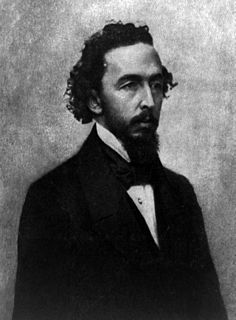A Quote by William Congreve
Blessings ever wait on virtuous deeds, and though a late, a sure reward succeeds.
Related Quotes
The truth is . . . that the great artists of the world are never puritans, and seldom ever ordinarily respectable. No virtuous man - that is, virtuous in the YMCA sense - has ever painted a picture worth looking at, or written a symphony worth hearing, or a book worth reading, and it is highly improbable that the thing has ever been done by a virtuous woman.
For, owners of their deeds (karma) are the beings, heirs of their deeds; their deeds are the womb from which they sprang; with their deeds they are bound up; their deeds are their refuge. Whatever deeds they do-good or evil-of such they will be the heirs. And wherever the beings spring into existence, there their deeds will ripen; and wherever their deeds ripen, there they will earn the fruits of those deeds, be it in this life, or be it in the next life, or be it in any other future life.
Father monks, why do you fast! Why do you expect reward in heaven for that?...No, saintly monk, you try being virtuous in the world, do good to society, without shutting yourself up in a monastery at other people's expense, and without expecting a reward up aloft for it--you'll find that a bit harder.
It must not be supposed that happiness will demand many or great possessions; for self-sufficiency does not depend on excessive abundance, nor does moral conduct, and it is possible to perform noble deeds even without being ruler of land and sea: one can do virtuous acts with quite moderate resources. This may be clearly observed in experience: private citizens do not seem to be less but more given to doing virtuous actions than princes and potentates. It is sufficient then if moderate resources are forthcoming; for a life of virtuous activity will be essentially a happy life.






































